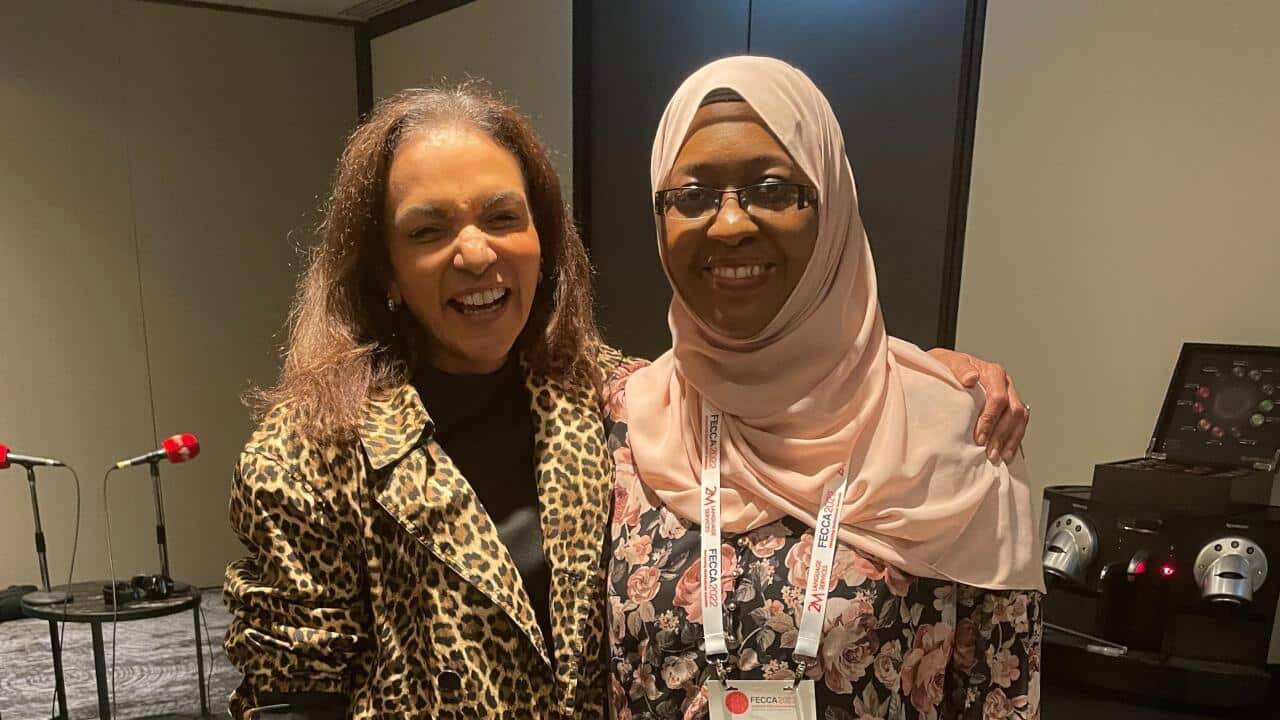Highlights
- Minister Dr Anne Aly participated in this year’s Federation of Ethnic Communities Councils of Australia conference.
- She ran a session entitled “Women in Leadership” in which she said she hoped her political career would open the door for other women.
- Dr Aly says she believes that her new role starts with communicating with young people from abroad or from immigrant families.
Speaking at the Federation of Ethnic Communities Councils of Australia (FECCA) conference on June 16, Dr Aly reflected on retaining the federal seat of Cowan at last month's federal election, and her appointment as Minister for Youth and Early Childhood Education.
Securing a spot in Prime Minister Anthony Albanese's cabinet means she is the first federal minister of Arab descent.
Dr Aly described being given the new portfolio as “a great honour” and hoped her success would inspire other candidates from immigrant backgrounds to pursue political careers.
The May 21 federal poll resulted in eight per cent of members from immigrant families, a figure Dr Aly says falls short of the parliament being truly representative of Australia’s sizeable multicultural community.
found just 4.1 per cent of MPs in Australia’s 45th parliament had a non-European background and 1.5 per cent had an Indigenous background.
In comparison and according to a report compiled by , 10.6 per cent or 24 MPs in the 46th parliament were born overseas.
“This (figure) is better than before, but since (around) 25 per cent of Australia’s population has parents born outside of Australia, parliament must reflect these figures,” she said.
A lot of things have changed, but we’ve got a long way to go.
According to the 2016 Census, 28.5 per cent of Australians were born overseas. While the United Kingdom remains the largest country of origin within that, China and India are in second and third place respectively.
A major obstacle to more people from diverse backgrounds entering federal politics is Section 44 of the Australian Constitution which requires that citizens can not hold or run for political office if they have the rights to or hold citizenship in another country.
Section 44 was at the centre of the 2017–18 Australian parliamentary eligibility crisis, which saw a number of MPs deemed ineligible to sit by the High Court.
At this year’s FECCA conference, Dr Aly moderated a session entitled “Women in Leadership” in which she outlined ways to break down barriers and reach the top in a range of fields.
“It is my responsibility to help the new generation of immigrant communities reach parliament, (and) specifically encourage women to hold these positions and provide them with opportunities to achieve their potential. That's the most important thing for me,” she said.
I'm the first, but I don't want to be the last.
“The most important responsibilities of the federal government are to listen to the voices of women and immigrant communities to learn about their demands.”
'We have to open the right doors.'
As Youth Minister, Dr Aly says she believes the right start lies in communicating with young people who migrated recently or from immigrant families.
"If young people want to enter politics, we will open the doors for them,” she said.
“The same applies to any other area such as the economy and agriculture. but the first step is to listen, talk, collaborate and consult.
"The priority is to make childcare less expensive and to provide 90 per cent support to people on low incomes."
Dr Aly said the recent announcement by the state governments in New South Wales and Victoria to make kindergarten free for three and four-year-olds was a good start towards making childcare more affordable.
She said she did not view herself as a role model for others but noted that when she was a child, she had not seen any women from Arabic backgrounds in parliament or being featured in news bulletins.
“I encourage every mother to say to her daughter: you too can succeed in Australia and be an MP or minister. The door is not locked in your face,” she said.


